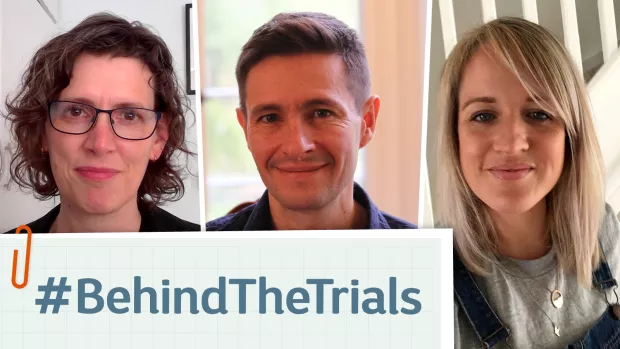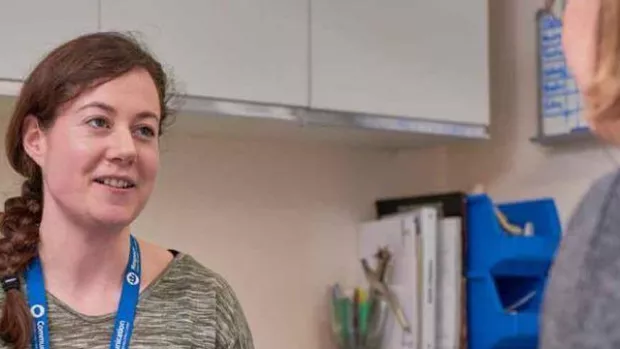
Under the microscope: early intensive treatment
Currently there are over a dozen disease modifying therapies (DMTs) available for relapsing MS. These vary in their intensity and side effects. It’s common practice to start with less intensive DMTs when you’re newly diagnosed. But MS experts are now debating if we should start treating people with intensive DMTs as soon as they get diagnosed.
There’s an ongoing debate among MS specialists about the type of treatments newly diagnosed people with MS should get. Some specialists believe treating early with the most intensive DMT is the best approach. More intensive treatments, for example natalizumab and alemtuzumab, are generally better at reducing relapses and progression of disability than other therapies. But they can also have more serious side effects.
Other specialists believe intensive therapies should only be used if the less effective (but safer) DMTs don’t control someone’s MS. This is called the escalation approach. In the past, this is the approach that’s been used most often.
Using real-world data
There have already been some observational studies that compare both approaches. In these studies, researchers look back on the treatments taken by people with MS and how their MS progressed.
For example, researchers from Cardiff University looked at data from 592 people treated for MS in South Wales over the last 20 years. They found early intensive treatment during the early stages of MS led to slower progression of disability.
Similarly, researchers used the Italian MS Registry to look at how the level disability of people with relapsing remitting MS had changed over 10 years. They found people who had an early intensive treatment approach had on average less disability after 10 years than people who were treated with the escalation approach.
Click here to read the paper in on the journal webpage
Comparing national strategies
Researchers have also tested how national strategies can impact disability progression. They looked at data from the Danish and Swedish national MS registries.
The researchers found more intensive DMTs were prescribed in Sweden than in Denmark. They also found that starting with the more intensive DMTs (the strategy that was more common in Sweden) led to less disability progression compared to the Danish less-intensive treatment strategy.
Click here to read the paper on the journal webpage
How much evidence do we need?
In the observational studies done so far, researchers didn’t randomly assign the type of treatment to each person. Instead, they looked back on existing data to analyse trends. Some MS experts think this is enough evidence to show that early intensive treatment is better.
However, other experts think we need to do a clinical trial to compare both strategies. That’s when researchers compare different treatment strategies by assigning participants to different treatment groups at random. And it’s the gold standard of research.
Clinical trials
We hope more research will help settle this debate. That’s why we’re committed to funding clinical trials like DELIVER-MS.
Dr Nikos Evangelou and his DELIVER-MS team are comparing three groups:
- people who start off with a milder treatment
- people who start with a more intensive treatment
- people who have chosen their own treatment (they were not assigned at random)
They will analyse how effective the treatment approaches are by measuring brain shrinkage on MRI scans. This is a good indicator for long-term disability.
Ultimately, we hope that this research will help people with MS and their neurologists to make an informed decision about the best treatment approach for them.
Find out how you can take part on the DELIVER-MS website
Another ongoing trial is AttackMS. The study led by Professor Klaus Schmierer at Queen Mary University of London compares starting a highly effective DMT within 14 days or 12 weeks of coming to A&E with signs of MS.
Our priorities
Finding out how early intensive treatment can affect how MS progresses in the long term is one of our top 10 research priorities. Because we want everyone with MS to have access to the treatments they need to live well with MS.
You can help us understand more about different treatments by supporting research like this.




